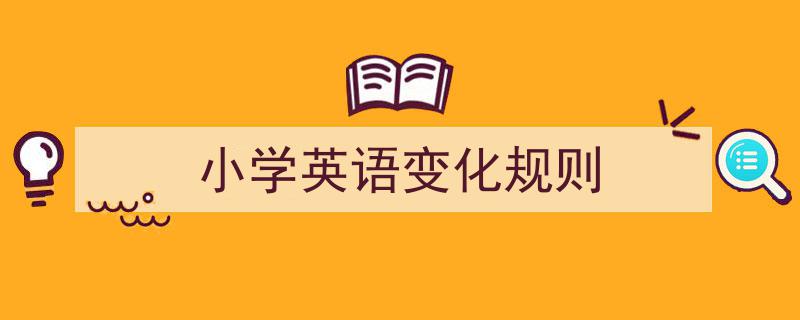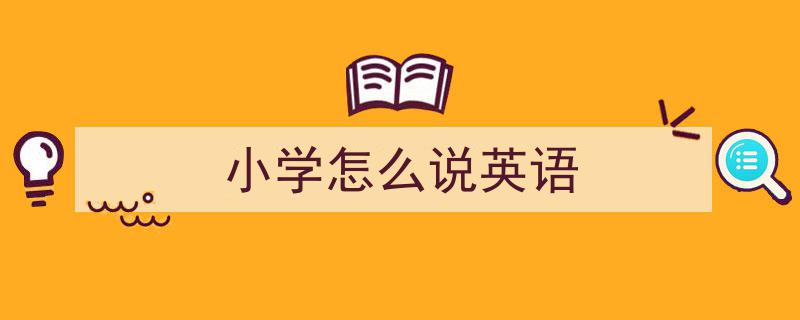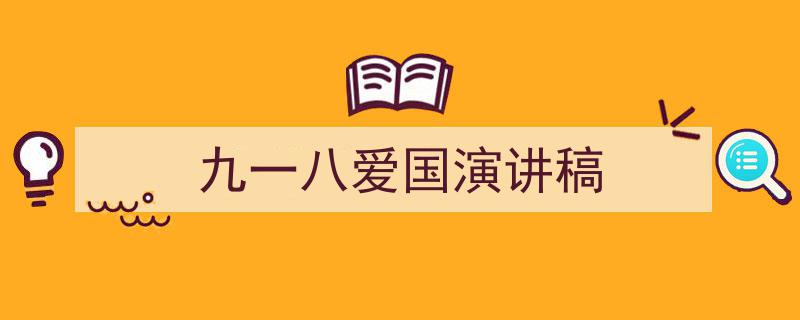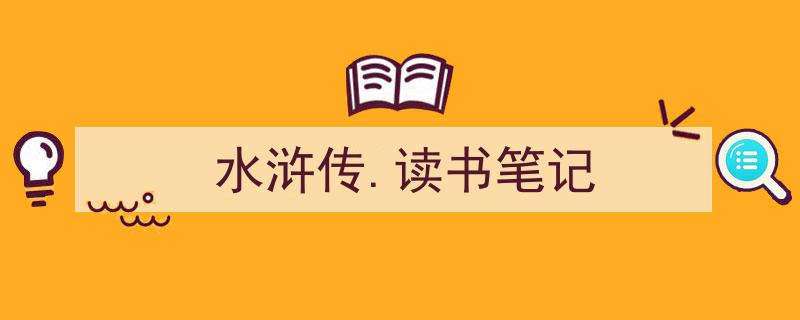欢迎来到58原创网网
一篇文章轻松搞定《小学英语变化规则》的写作。(精选5篇)
更新日期:2025-07-24 09:45

写作核心提示:
标题:小学英语变化规则作文写作注意事项
正文:
随着英语教育的普及,小学英语教学在不断地更新和完善。在小学英语作文教学中,掌握英语变化规则是至关重要的。以下是一些在写作小学英语变化规则作文时需要注意的事项:
1. 确保语法正确 作文中的语法错误会影响文章的整体质量。因此,在写作时,要确保动词、名词、形容词等词类的变化规则正确无误。例如,动词的时态、语态、单复数变化等。
2. 逻辑清晰 作文应具备清晰的逻辑结构,使读者能够轻松理解。在写作过程中,要注意段落之间的过渡,确保文章的连贯性。
3. 词汇丰富 词汇是英语作文的基础。在作文中,要尽量使用丰富的词汇,使文章更具表现力。同时,要注意词汇的正确拼写和用法。
4. 句子结构多样化 为了使作文更具吸引力,要注意句子结构的多样化。可以运用简单句、并列句和复合句等不同类型的句子,使文章读起来更加生动。
5. 注意时态和语态 在英语作文中,时态和语态的正确运用至关重要。要根据文章内容和语境,选择合适的时态和语态。例如,描述过去发生的事情时,应使用过去时态;描述正在发生的事情时,应使用现在进行时态。
6. 避免中式英语 在写作过程中,要注意避免中式
小升初一般过去时不规则动词变化规则速记及双语例句
小升初一般过去时不规则动词变化规则速记及双语例句
一、AAA型(原形、过去式、过去分词同形)
- cut(切;割):cut - cut - cut
- She cut the cake into six pieces yesterday.(她昨天把蛋糕切成了六块。)
- My father cut the grass in the garden last weekend.(我爸爸上周末修剪了花园里的草。)
- The boy cut his finger when he was using the knife.(这个男孩在用刀的时候割伤了手指。)
- Mom cut some vegetables for dinner this morning.(妈妈今天早上切了一些蔬菜准备晚餐。)
- I cut the rope to make it shorter.(我把绳子割断,让它变短些。)
- They cut down a big tree in the park last month.(他们上个月在公园里砍倒了一棵大树。)
- He cut the picture out of the magazine.(他从杂志上剪下了这张图片。)
- The tailor cut the cloth to make a dress.(裁缝裁剪布料做一条连衣裙。)
- We cut the watermelon and shared it.(我们切开西瓜一起分享。)
- The barber cut my hair yesterday afternoon.(理发师昨天下午给我剪了头发。)
- She cut the paper into different shapes.(她把纸剪成了不同的形状。)
- My brother cut the wood for the fire.(我哥哥砍木头生火。)
- The cook cut the meat into small pieces.(厨师把肉切成小块。)
- They cut the ribbon to start the event.(他们剪断彩带开始活动。)
- I cut my nails this morning.(我今天早上剪了指甲。)
- put(放;安置):put - put - put
- He put the book on the desk just now.(他刚才把书放在了桌子上。)
- She put the toys into the box yesterday evening.(她昨天晚上把玩具放进了盒子里。)
- I put my coat in the wardrobe this morning.(我今天早上把外套放进了衣柜。)
- They put the chairs around the table last night.(他们昨晚把椅子摆放在桌子周围。)
- The teacher put the chalk on the teacher's desk.(老师把粉笔放在讲台上。)
- Mom put the flowers in the vase.(妈妈把花插进花瓶里。)
- He put the keys in his pocket.(他把钥匙放进了口袋里。)
- We put the food in the fridge to keep it fresh.(我们把食物放进冰箱保鲜。)
- She put the letter in the envelope.(她把信放进信封里。)
- They put up a tent in the forest last weekend.(他们上周末在森林里搭起了帐篷。)
- I put my shoes at the door.(我把鞋子放在门口。)
- The workers put the boxes on the truck.(工人们把箱子放在卡车上。)
- He put the money in the bank.(他把钱存进了银行。)
- She put the hat on her head.(她把帽子戴在头上。)
- We put the candles on the birthday cake.(我们把蜡烛插在生日蛋糕上。)
- read(读;阅读):read - read - read(读音不同,原形 ,过去式和过去分词 )
- I read an interesting storybook last night.(我昨晚读了一本有趣的故事书。)
- She read the newspaper this morning.(她今天早上看了报纸。)
- He read a poem to the class yesterday.(他昨天给全班同学读了一首诗。)
- They read the instructions carefully before using the machine.(他们在使用机器前仔细阅读了说明书。)
- My father reads novels every evening.(我爸爸每天晚上看小说。)(一般现在时,这里是用于对比说明read不同时态的用法)
- We read English aloud every morning.(我们每天早上大声读英语。)(一般现在时)
- The students read the text again and again.(学生们一遍又一遍地读课文。)
- She read the letter from her friend with a smile.(她微笑着读朋友的来信。)
- He read his favorite book on the train.(他在火车上读他最喜欢的书。)
- They read magazines during the break.(他们在课间看杂志。)
- I read some ancient poems last week.(我上周读了一些古诗。)
- Mom read a bedtime story to my little sister.(妈妈给我的小妹妹读睡前故事。)
- The teacher asked us to read the passage silently.(老师让我们默读这篇文章。)
- We read the notice on the wall.(我们读了墙上的通知。)
- She read the words on the blackboard clearly.(她清楚地读出黑板上的字。)
- cost(花费;值):cost - cost - cost
- The book cost me twenty yuan yesterday.(这本书昨天花了我二十元。)
- The new bike cost him a lot of money.(这辆新自行车花了他很多钱。)
- That beautiful dress cost her two hundred dollars.(那件漂亮的连衣裙花了她两百美元。)
- The trip to the beach cost our family a fortune.(去海滩的旅行花了我们家一大笔钱。)
- The repairs to the car cost more than we expected.(汽车的修理费用比我们预想的要高。)
- The dinner at the fancy restaurant cost us a bomb.(在那家高档餐厅吃晚餐花了我们一大笔钱。)
- The tickets for the concert cost a bit much.(音乐会的门票有点贵。)
- The new computer cost his parents five thousand yuan.(这台新电脑花了他父母五千元。)
- The painting cost the collector a great deal.(这幅画让收藏家花了大价钱。)
- The decoration of the house cost them a fortune.(房子的装修花了他们一大笔钱。)
- The present for his girlfriend cost him a month's salary.(给女朋友的礼物花了他一个月的工资。)
- The medical treatment cost the poor family all their savings.(医疗费用花光了这个贫困家庭所有的积蓄。)
- The project cost the company a large amount of capital.(这个项目花了公司大量资金。)
- The purchase of the new furniture cost them a lot.(购买新家具花了他们很多钱。)
- The tuition for the international school cost the parents an arm and a leg.(国际学校的学费让家长们花费不菲。)
二、AAB型(原形与过去式同形)
- beat(打;打败;跳动):beat - beat - beaten
- They beat the drums loudly in the parade yesterday.(他们昨天在游行中大声击鼓。)
- Our school team beat the rival team in the basketball game last week.(我们校队上周在篮球比赛中打败了对手。)
- His heart was beating fast when he saw the snake.(他看到蛇时心跳得很快。)
- The rain beat against the window all night.(雨整夜敲打着窗户。)
- The workers beat the metal into various shapes.(工人们把金属锤打成各种形状。)
- She beat the eggs for the cake this morning.(她今天早上为做蛋糕打鸡蛋。)
- The boxer beat his opponent in the first round.(拳击手在第一回合就打败了对手。)
- They beat the carpets to get rid of the dust.(他们拍打地毯除去灰尘。)
- The waves beat the shore continuously.(海浪不断拍打着海岸。)
- He beat the dog with a stick, which was cruel.(他用棍子打狗,这很残忍。)
- The drummer beat the rhythm skillfully.(鼓手熟练地敲打出节奏。)
- We tried to beat the deadline for the project.(我们努力赶在项目截止日期前完成。)
- The wind beat the trees, making them sway.(风吹打着树木,使它们摇晃。)
- She beat her rival in the singing competition.(她在歌唱比赛中击败了对手。)
- The heart beats around 70 - 80 times per minute.(心脏每分钟跳动约70 - 80次。)(一般现在时,用于说明常态)
三、ABA型(原形与过去分词同形)
- come(来;来到):come - came - come
- She came to my birthday party last Saturday.(她上周六来参加了我的生日派对。)
- They came to visit us from the countryside yesterday.(他们昨天从乡下来看望我们。)
- My father came home late last night because of the heavy traffic.(我爸爸昨晚因为交通拥堵很晚才回家。)
- When did you come to this city?(你什么时候来到这个城市的?)
- A good idea came to me when I was thinking.(我思考的时候想到了一个好主意。)
- The guests came one by one to the wedding.(客人们一个接一个地来到婚礼现场。)
- He came to realize his mistake after the teacher's explanation.(在老师解释后,他逐渐意识到了自己的错误。)
- The spring came, and the flowers began to bloom.(春天来了,花儿开始绽放。)
- She came running towards me with a big smile.(她笑着朝我跑过来。)
- They came to a decision after a long discussion.(经过长时间的讨论,他们做出了决定。)
- The news came as a shock to everyone.(这个消息让每个人都很震惊。)
- My friends came to help me with my homework.(我的朋友们来帮我做作业。)
- The train came into the station slowly.(火车缓缓驶入车站。)
- He came to my rescue when I was in trouble.(当我遇到困难时,他来救了我。)
- She came to terms with her failure eventually.(她最终接受了自己的失败。)
- become(成为;变成):become - became - become
- He became a famous singer last year.(他去年成为了一名著名的歌手。)
- The little girl became a doctor after years of hard work.(经过多年的努力,这个小女孩成为了一名医生。)
- The weather became colder yesterday.(昨天天气变冷了。)
- The caterpillar became a beautiful butterfly.(毛毛虫变成了一只美丽的蝴蝶。)
- Our school became more and more beautiful.(我们的学校变得越来越漂亮。)
- She became interested in painting after visiting the art museum.(参观艺术博物馆后,她对绘画产生了兴趣。)
- The place became a popular tourist spot.(这个地方成了一个热门的旅游景点。)
- His dream became a reality at last.(他的梦想终于成真了。)
- The situation became worse as time went on.(随着时间的推移,情况变得更糟了。)
- He became rich by working hard.(他通过努力工作变得富有。)
- The company became one of the leading enterprises in the industry.(这家公司成为了行业内的领先企业之一。)
- The old house became a historical site.(这座老房子成了一处历史遗迹。)
- She became a mother last month.(她上个月当上了妈妈。)
- The small village became a modern town.(这个小村庄变成了一个现代化的城镇。)
- The boy became a hero after saving the drowning child.(这个男孩救了溺水的孩子后成了英雄。)
- run(跑;奔跑;经营):run - ran - run
- He ran to the bus stop quickly yesterday morning.(他昨天早上快速跑到了公交车站。)
- The children ran around the playground happily last weekend.(上周末孩子们在操场上快乐地跑来跑去。)
- She ran a mile every day to keep fit last year.(去年她每天跑一英里来保持健康。)
- They ran out of the classroom when the bell rang.(铃响时,他们跑出了教室。)
- My father runs a small shop in the neighborhood.(我爸爸在附近经营一家小店。)(一般现在时,用于说明现在的经营状态)
- The dog ran after the cat and scared it.(狗追着猫跑,把猫吓坏了。)
- She ran into an old friend on the street yesterday.(她昨天在街上偶遇了一位老朋友。)
- We ran a race in the sports meeting last term.(上学期我们在运动会上进行了一场赛跑。)
- He ran his business very well.(他把生意经营得很好。)
- The water ran out of the pipe and flooded the kitchen.(水从水管里流出来,淹没了厨房。)
- They ran for their lives when they saw the fire.(看到火灾时,他们拼命逃命。)
- She ran up the stairs to get her bag.(她跑上楼去拿她的包。)
- The car ran out of gas on the way.(汽车在路上没油了。)
- He ran his fingers through his hair nervously.(他紧张地用手指梳理着头发。)
- We ran a project to help the poor.(我们开展了一个帮助穷人的项目。)
四、ABB型(过去式与过去分词同形)
- bring(带来;拿来):bring - brought - brought
- She brought me a present from her trip last week.(她上周旅行给我带了一份礼物。)
- They brought some flowers to the party yesterday.(他们昨天带了一些花去派对。)
- My father brought home a new book for me last night.(我爸爸昨晚给我带回家一本新书。)
- The teacher brought some interesting stories to the class.(老师给班上带来了一些有趣的故事。)
- He brought his friend to our school last month.(他上个月带他的朋友来我们学校。)
- Mom brought a lot of delicious food to the picnic.(妈妈带了很多美味的食物去野餐。)
- The company brought in a new manager last year.(公司去年引进了一位新经理。)
- She brought up the problem at the meeting.(她在会议上提出了这个问题。)
- They brought the old house back to life after renovation.(他们翻新后使这座老房子焕然一新。)
- He brought a lawsuit against the company.(他对这家公司提起了诉讼。)
- The storm brought down many trees.(暴风雨刮倒了许多树。)
- She brought her dog with her when she moved.(她搬家时带上了她的狗。)
- They brought the project to a successful conclusion.(他们成功完成了这个项目。)
- He brought his skills to the new job.(他把自己的技能运用到新工作中。)
- We brought our enthusiasm to the volunteer work.(我们把热情投入到志愿工作中。)
- buy(买;购买):buy - bought - bought
- I bought a new schoolbag yesterday.(我昨天买了一个新书包。)
- She bought some fruits in the supermarket this morning.(她今天早上在超市买了一些水果。)
- They bought a big house last year.(他们去年买了一座大房子。)
- My mother bought me a pair of shoes.(我妈妈给我买了一双鞋。)
- He bought a ticket for the movie.(他买了一张电影票。)
- We bought a lot of gifts for our friends.(我们给朋友们买了很多礼物。)
- She bought a beautiful dress for the party.(她为派对买了一条漂亮的连衣裙。)
- They bought a new car to replace the old one.(他们买了一辆新车来替换旧车。)
- My father bought a computer for my study.(我爸爸为我的学习买了一台电脑。)
- He bought a bunch of flowers for his girlfriend.(他给女朋友买了一束花。)
- We bought some furniture for the new apartment.(我们为新公寓买了一些家具。)
- She bought a magazine to read on the train.(她买了一本杂志在火车上看。)
- They bought some seeds to plant in the garden.(他们买了一些种子在花园里种植。)
- He bought a toy for his little brother.(他给弟弟买了一个玩具。)
- We bought some paint to decorate the room.(我们买了一些油漆来装饰房间。)
- think(想;思考;认为):think - thought - thought
- I thought about your suggestion last night.(我昨晚考虑了你的建议。)
- She thought he was a good student.(她认为他是个好学生。)
- They thought the movie was very interesting.(他们觉得这部电影很有趣。)
- My father thought it over before making a decision.(我爸爸在做决定前仔细考虑了一下。)
- He thought of a good idea to solve the problem.(他想出了一个解决问题的好办法。)
- We thought that we could finish the work on time.(我们原以为我们能按时完成工作。)
- She thought highly of his performance.(她对他的表现评价很高。)
- They thought little of the plan.(他们不太重视这个计划。)
- I thought I had lost my key, but I found it later.(我以为我把钥匙丢了,但后来找到了。)
- He thought back to his childhood days.(他回想起自己的童年时光。)
- We thought out a new plan for the project.(我们为这个项目想出了一个新计划。)
- She thought ahead and prepared everything
五张图解锁英语动词不规则变化的“隐藏规律”
提到英语不规则动词,很多人第一反应是“头大”:为什么“eat”的过去式是“ate”而不是“eated”?“go”的过去分词为什么是“gone”?这些跳出“加-ed”规则的变化,仿佛是语法里的“捣蛋鬼”,让人不得不靠死记硬背应付。但其实,不规则动词并非“无规律可循”,它们藏着古老的语言逻辑和演变规律。今天就带你解锁这些“隐藏规律”,让记忆效率翻倍!
文章说明
本站部分资源搜集整理于互联网或者网友提供,仅供学习与交流使用,如果不小心侵犯到你的权益,请及时联系我们删除该资源。






